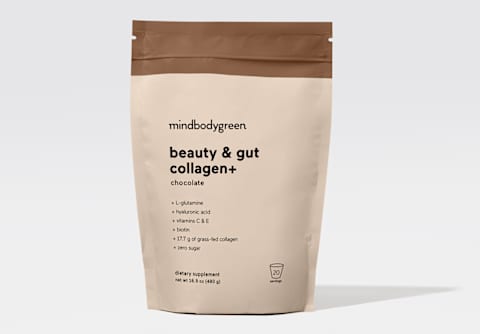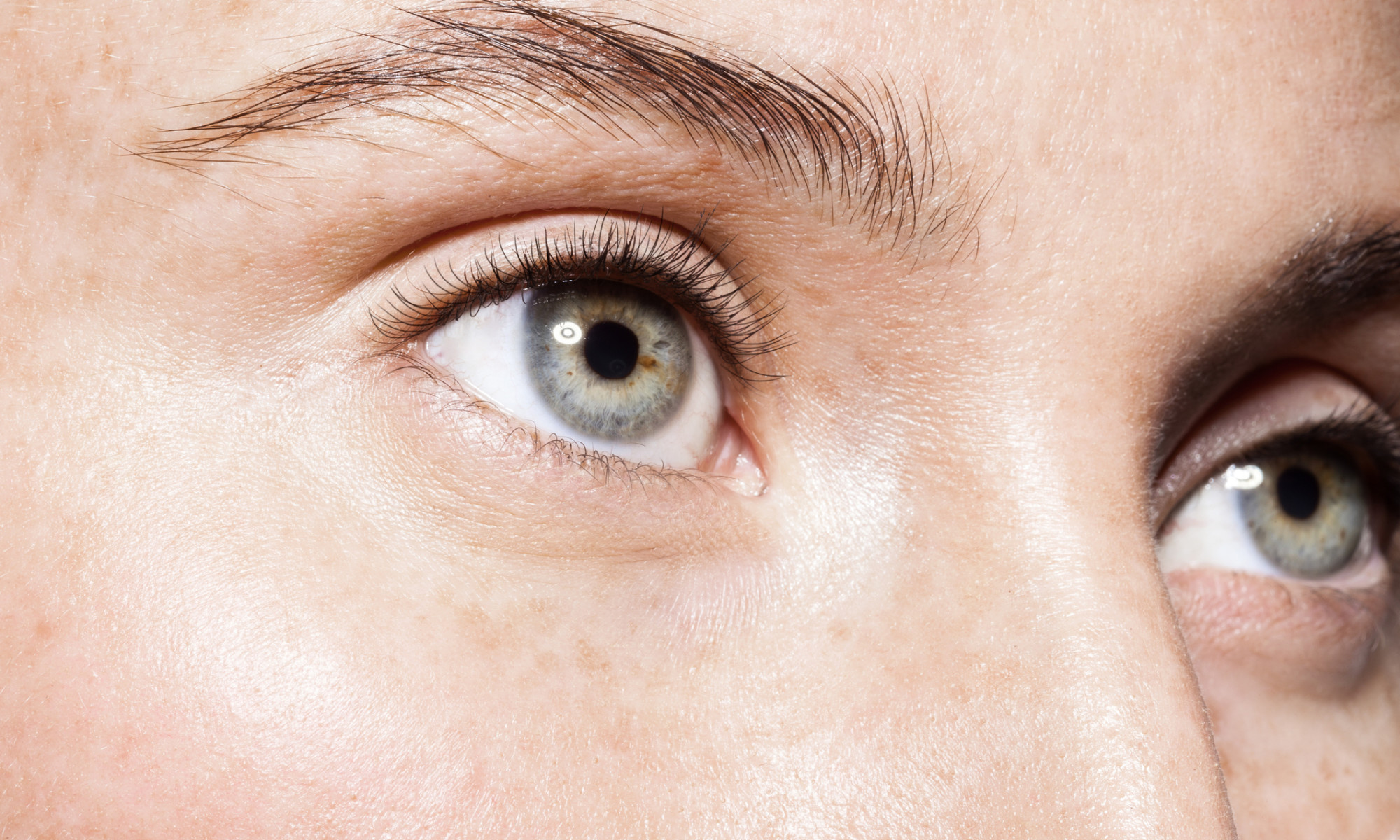Think Collagen Supplements Are All Hype? This Research Will Make You Reconsider
The skin-loving supplement has something to prove.

Advertisement
This ad is displayed using third party content and we do not control its accessibility features.

Beauty & Health Editor
Beauty & Health Editor
Hannah Frye is the Beauty & Health Editor at mindbodygreen. She has a B.S. in journalism and a minor in women’s, gender, and queer studies from California Polytechnic State University, San Luis Obispo. Hannah has written across lifestyle sections including beauty, women’s health, mental health, sustainability, social media trends, and more. She previously worked for Almost 30, a top-rated health and wellness podcast. In her current role, Hannah reports on the latest beauty trends and innovations, women’s health research, brain health news, and plenty more.
Image by Lauren Lee / Stocksy February 17, 2025 Certain supplements have a longer history and, consequently, more extensive research supporting their benefits. This is why newer supplements, such as collagen peptides, have stirred considerable controversy in recent years due to a lack of established research backing their effects. Luckily, more and more research on this skin-boosting supplement is breaking the surface year after year. To come, recent findings you should know about and how to spot a worthy supplement for peak complexion glow.Why collagen supplements encourage skin rejuvenation
A systematic review and meta-analysis published in the journal Cures evaluated 14 studies, encompassing almost 1,000 participants in total.
Skin elasticity improvement
Skin elasticity, as you may imagine, refers to your skin's ability to be stretched, bounce back, and act supple—a factor that unfortunately breaks down with age as your elastin and collagen simultaneously decrease.
Increased hydration
But it's not just collagen and elastin fibers that dip with age—skin hydration often follows suit. This happens for several reasons, including skin barrier dysfunction and the age-related decline of ceramides and hyaluronic acid in the skin.
So, even if you keep up with the same hydration routine from the outside (say, using a great face cream), your skin will still feel drier with age because of that internal hydration deficit.
Apart from keeping the skin barrier function happy and thriving (an essential job of your largest organ), increased moisture in the skin will also lead to an improved appearance of fine lines and wrinkles—hence, why so many young 20-somethings with dehydrated skin often mistake this for premature wrinkles.
How to spot a great collagen supplement
Now, while these findings are another positive tick on the board for collagen supplements, I have to point out one major distinction: These beneficial effects come from hydrolyzed collagen peptides—a crucial component researchers call out in the study.
This is because hydrolyzed peptides are easier to digest and thus, easier for your body to use. See, when hydrolyzed collagen is ingested, it travels through the bloodstream in the form of dipeptides and tripeptides.
These collagen-derived peptides, researchers say, are then distributed to various tissues (including the skin) where they accumulate as peptides or amino acids. Then, the accumulation triggers a cellular response in skin fibroblasts, increasing their activity. Pretty cool, right?
When shopping, you'll certainly want to seek hydrolyzed peptides on the list of credentials, but you should also look for additional skin-loving ingredients to make the product worth your money. Below, a quick list of some to consider:
The takeaway
A meta-analysis found that 12 weeks of collagen supplementation can lead to improvements in both skin elasticity and moisture levels. Consider this more exciting research that just may cause beauty advocates to consider (and for some, reconsider) the validity of collagen supplements for optimized skin aging.

 Fransebas
Fransebas 

































